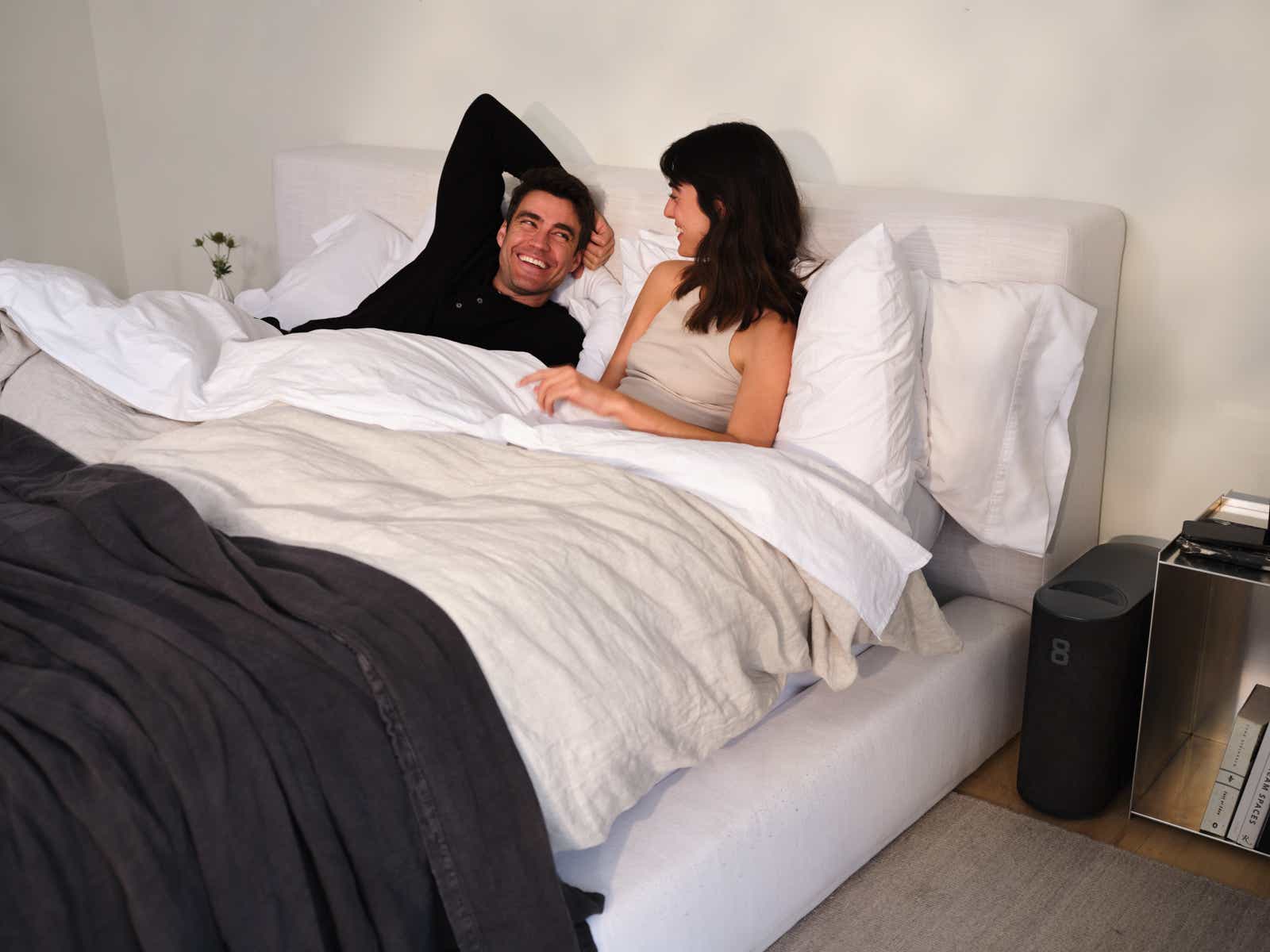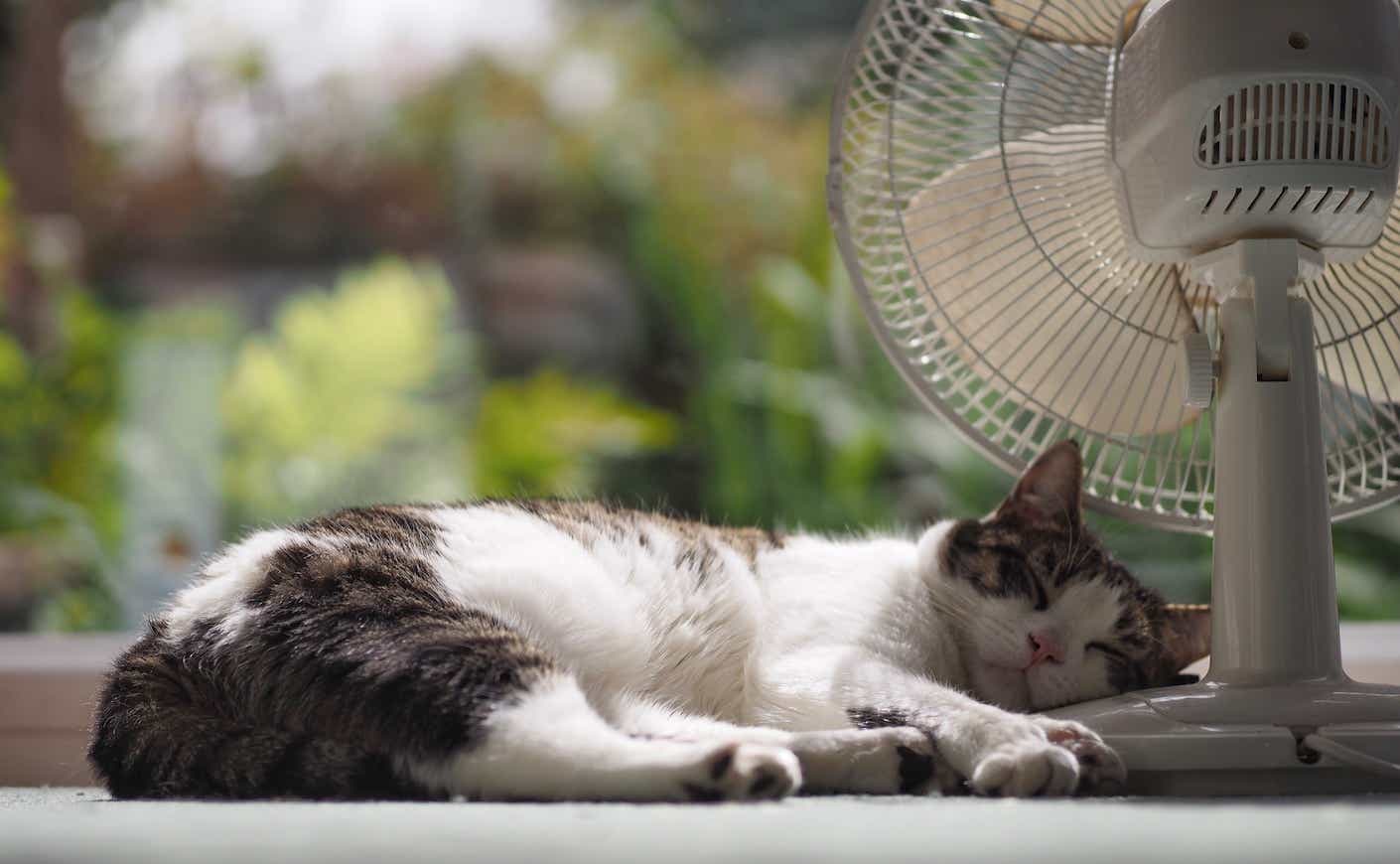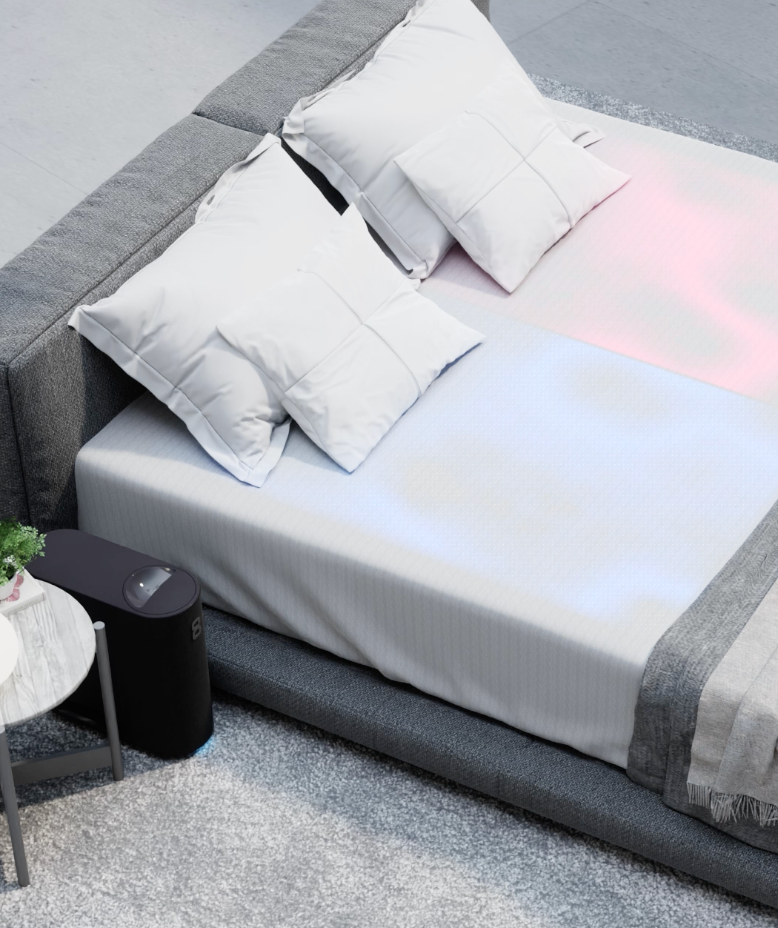We’re all familiar with the challenges of falling — and staying — asleep during the summer. Maybe you crank your air conditioning when you first get into bed, but by the time you wake up, you’re shivering from the cold. Or worse, you’re experiencing hot flashes and night sweats, making it impossible to get comfortable enough to get adequate rest. Finding that Goldilocks temperature to induce a good snooze can be a frustrating endeavor involving a lot of lost sleep, sweaty pajamas, and tangled sheets.
The good news, however, is that the perfect sleeping temperature does exist. To get the lowdown on the complex connection between sleep and temperature, we spoke to sleep expert Nicole Moyen, Ph.D., director of science and clinical research at Eight Sleep, makers of revolutionary mattress covers designed to optimize your sleep for you (which you can currently get for $200 off with code KCM). She answered all our burning questions (including the best temperature for sleeping) to ensure you’re getting high-quality rest.
How does temperature affect sleep quality and depth?
Temperature and sleep are closely entwined and dependent on each other, Dr. Moyen tells us. On one hand, our bodies have a built-in system of thermoregulation that adjusts our body temperature without us having to think about it. Simultaneously, our circadian rhythm — a natural biological clock that regulates our sleep and wake periods in a 24-hour cycle — controls our sleep patterns.
According to sleep- and neuroscientist Matt Walker, our body temperature naturally decreases about two to three degrees Fahrenheit as we enter the nocturnal sleep phases of the circadian rhythm. “This drop in temperature sets the tone for relaxation and comfortability, which, in turn, aids in falling asleep faster,” Walker says.
After we fall asleep, our body temperatures continue to decrease and fluctuate throughout the night until we approach the wake phase of the circadian rhythm, at which point our inner temperature gradually increases and lets our bodies know that it’s time to wake up — which is exactly what Eight Sleep’s Pod Cover does.
What’s the best temperature to sleep at?
Given the interplay between body temperature and natural sleep patterns, Moyen says, the ideal temperature to sleep at changes throughout the night. Generally speaking, however, the most comfortable temperature to sleep at is between 60 and 68 degrees Fahrenheit for most people, depending on a range of factors like age, gender, and body composition.
For example, research indicates that while men and women like to sleep at similar skin temperatures, women tend to have a cooler skin temperature than men due to generally slower metabolisms. Further, women’s hands are often colder than men’s hands by about 7 degrees Fahrenheit, and since temperature perception begins with the extremities, women tend to feel much colder than men at night.

Of course, this makes things difficult for partners of the opposite sex sleeping in the same bed. “Women might need a much warmer bed temperature in order to achieve a similar skin temperature during sleep,” Moyen says. “Additionally, women’s menstrual cycles affect their body temperatures throughout the month, so pajamas that feel perfectly warm one night might be too warm or not warm enough on another.”
How does age affect our ideal sleeping temperatures?
You may have heard (or experienced) that sleeping can become a lot more difficult as you age. According to Moyen, our natural ability to regulate our body temperature declines as we age. This means that older people generally need warmer sleeping temperatures than younger people.
The exception here is perimenopausal and postmenopausal women, who usually prefer cooler temperatures to counteract night sweats and hot flashes.
How does Eight Sleep address sleeping temperature?
Into this difficult-to-navigate mix comes Eight Sleep’s Pod mattress covers, which track your sleep history and patterns, log them in an app, and use the data to dynamically heat and cool your bed throughout the night to match your body’s ideal temperature. By supporting your innate circadian temperature response, the Pod helps you fall asleep and stay asleep, even if you are experiencing disruptive temperature changes like hot flashes.
“In a clinical study we conducted,” Moyen says, “Pod users reported falling asleep 44 percent faster, with 23 percent fewer sleep interruptions. This led to members reporting a 32 percent improvement in sleep quality overall.”
When the morning comes, the Pod gradually raises the bed temperature (and has an optional vibration alarm) to gently wake you up in accordance with your circadian rhythm. The best part? The Pod tracks and adjusts each side of the bed independently, creating the perfect sleep environment for both you and your partner. You can solve the great bedding debate once and for all.










